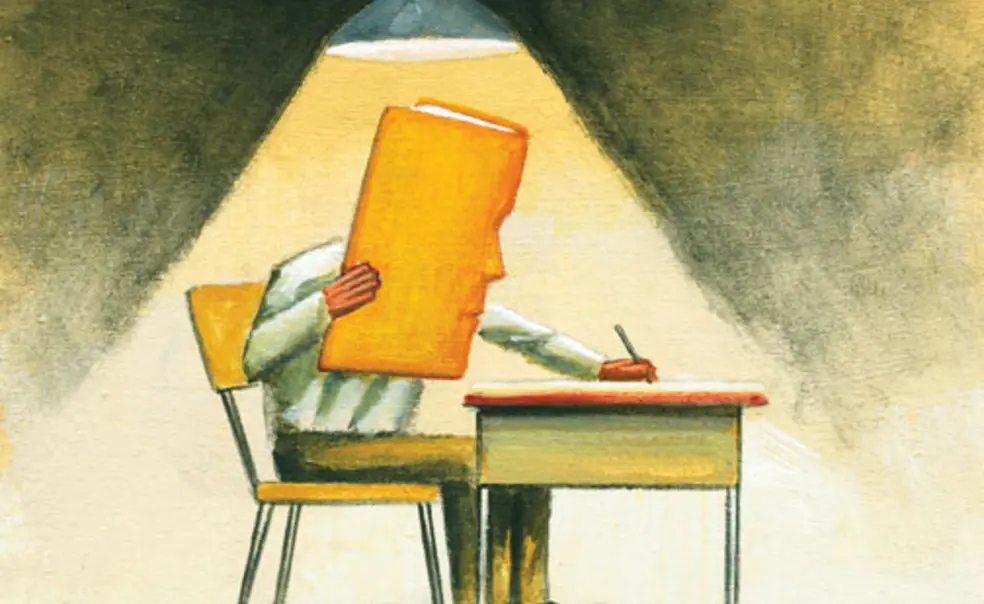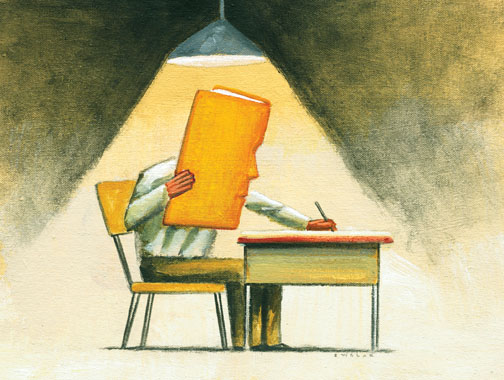In wake of cheating scandal, concern about ‘gray areas’ of honor system
On Aug. 30, Harvard officials announced a sweeping cheating investigation, implicating as many as 125 students for alleged plagiarism on a take-home final exam. The announcement raised many questions about academic integrity, but one seems particularly salient: Could it happen here?
Cheating can, of course, happen anywhere. But Princeton, like Harvard, is a place where students experience tremendous pressure to achieve. It’s also a place where the Honor Code, written by students in 1893 and continuously adapted based on student input, serves as a reminder of the consequences of cheating.
“It creates a certain set of values,” said Antonia Hyman ’13, chairwoman of the Honor Committee. “It’s reflective of what the student body thinks. ... The perception is that it works. But does it deter all cheating? Well, no.”
The Committee on Discipline, which hears all cases regarding work completed outside the classroom, reported 32 academic violations for the 2010–11 academic year, the most recent statistics available. Most of the cases involved plagiarism, and 22 resulted in suspension. Seven cases ended in disciplinary probation because the committee determined that a reasonable person might not have realized that the act in question violated University policy.
Such cases highlight the gray areas of Princeton’s honor system, which often revolve around the limits of appropriate collaboration: Some classes, for example, allow collaboration on problem sets but not on exams; others allow students to discuss assignments but require that all work be done individually; and some prohibit collaboration altogether. Perhaps the greatest confusion arises in classes that adopt combinations of these rules.
“The Honor Code is written in black and white, but there is no such thing,” said Jennifer Kim ’14. “The punishments that are dealt out are sometimes a little bit too harsh for these gray areas,” added Rafael Grillo ’14, who watched a classmate fight a plagiarism allegation last year that ended with a one-year suspension.
Victoria Jueds, the associate dean of undergraduate students who serves as the secretary for the Committee on Discipline, said general guidelines about collaboration are found in Academic Integrity at Princeton, a publication that all freshmen receive, but that professors establish individual policies on collaboration in class. When in doubt, she said, students should ask their professors for clarification.
Despite these concerns, many professors at Princeton continue to assign take-home exams and collaborative assignments. In January 2012, 32 percent of final assessments took the form of in-class exams, 17 percent were take-home exams, and 51 percent were projects, according to the Office of Communications.
The open-note, take-home final exam that Professor Michael Berry gives in “Cellular and Systems Neuroscience,” an exam designed much like that in question at Harvard, requires students to engage with course material through relevant journal articles. Berry feels that this allows for a more comprehensive, fairer — albeit longer — exam, benefits that outweigh the risk of cheating.
“I’m going to trust the Honor Code,” Berry said. “That’s what it’s there for.”













No responses yet